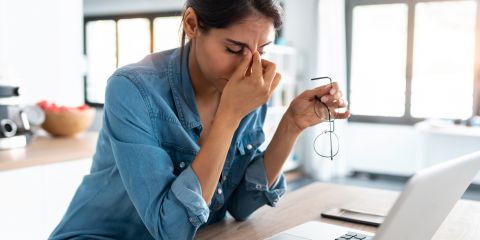Working from home has become part of the global response to the coronavirus pandemic. The reason is that isolating yourself from people through social distancing is the only way of preventing the spread of the virus since it doesn’t currently have a cure. Therefore, many citizens from countries around the world have to obey the law by staying and working from home.
However, prolonged isolation at home can affect your mental health. For instance, people working from home have already started experiencing stress and anxiety due to lots of pressure and change in the environment.
In a press meeting held on March 26, 2020, WHO officials discussed the challenges that the world is experiencing as a result of COVID-19.
A remark from Dr. Hans Kluge, the WHO’s regional director for Europe, stated that it’s natural for everyone to feel stressed, anxious, fearful, and lonely during the pandemic. Therefore, the effects on our mental health and psychological well-being are significant consequences of the COVID-19 outbreak.
What Is Stressful About Working From Home?
Many people are struggling due to the stressful and anxious challenges they experience while working from home as the reality becomes more apparent. While the involved stressors may not be similar to those associated at the workplace, they still have an impact.
Below are a few common causes of stress and anxiety of working at home.
Lack of Structure and Focus
Failure of setting up and focusing on boundaries when it is time to work without feeling out of control.
Too Many Distractions When Working From Home
You might face many interruptions from family members, house responsibilities, social media, among others. The outcome is you have a short time to concentrate on your work, which can cause stress. You will also be anxious when you are not productive.
Difficulty Setting Boundaries
Various responsibilities at home and work can be overwhelming and challenging.
To cope with stress and anxiety, below are a few strategies to preserve your mental well-being while working at home.
- Identifying and managing your stressors
- Setting a schedule on how you should work and sticking on it away from distractions
- Creating an online supportive network of colleagues and staying connected to them
- Protecting your sleep, and never using your mobile devices at night to rest your brain from a day’s stress
- Classifying your tasks into smaller goals and then rewarding yourself for accomplishing each step to make your work at home job pleasant, among others
- Staying positive
Final Thoughts From the Recover
While working from home can create a remarkable sense of flexibility and freedom, such as no commuting cost, there are hidden stressors and drawbacks that can affect your mental health. Meanwhile, while concentrating on ways to cope with stress and anxiety, you need to stay at home to avoid coronavirus infections.
However, let’s hope the pandemic will end sooner than we expect, and daily life routines resume. The most significant thing is for people to isolate themselves by staying at home as the only sure way of controlling infections for now.


